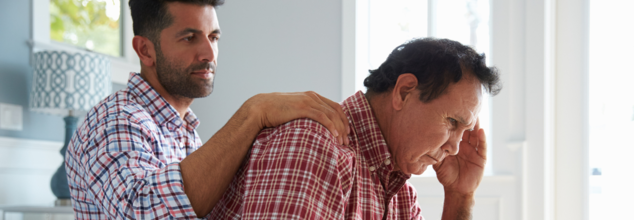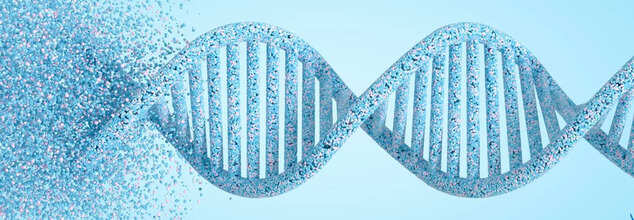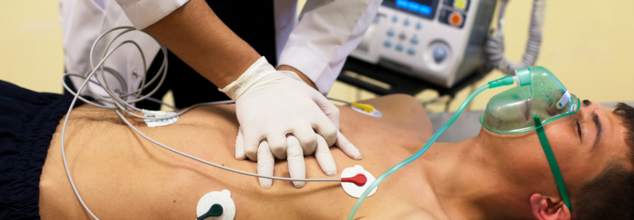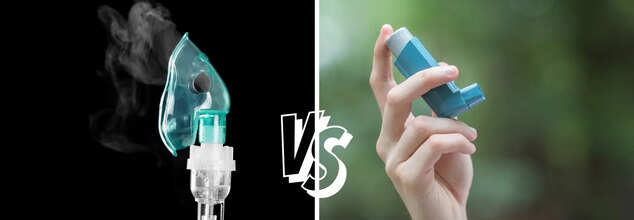- Health Conditions A-Z
- Health & Wellness
- Nutrition
- Fitness
- Health News
- Ayurveda
- Videos
- Medicine A-Z
- Parenting
- Web Stories

(Credit-Canva)
Undiagnosed Depression In Fathers Affects Children's Mental Health
Fathers are always portrayed as the strong ones who keep the family together. Many are not given the space to express their emotions in a healthy way. The idea that dads need to be strong and stoic affects many men in different ways. The surprising state of men’s mental health is evident in different statistics. According to World Health Organization (WHO), men commit suicide twice the rate more than women. About 80% of suicides reported in the US happen to be men. The Centers for Disease Control and Prevention (CDC) explains that men are four times more likely to die by suicide.
Not only is the lack of mental health care affecting men all around the world, but new study shows, their depression may have an effect on their children’s well-being. In a recent report done by the American Journal of Preventive Medicine, researchers found that children, whose fathers have undiagnosed depression, are more likely to have behavioral issues.
What Kinds Of Behaviors Did These Kids Exhibit?
The study found that young kids whose dads were found to be depressed, undiagnosed, were more likely to be restless and act out as they got older. By the time they were nine, they showed more anger and defiance. They also had a harder time working with others and didn't feel as good about themselves. This suggests that a father's early mental health can shape a child's behavior for many years.
Experts point out that we usually focus on mothers' mental health, especially after having a baby. However, this study reminds us of that fathers' mental health is just as important. We need to think about both parents' well-being because they both play a big role in raising their children. Ignoring one parent's struggles isn't good for the family as a whole.
How Common Is Parental Depression?
It might surprise you to learn that many fathers go through periods of feeling depressed when their kids are young. In fact, around 8 to 13 out of every 100 fathers in the US experience this. If the mother is also struggling with depression after giving birth, the chances of the father feeling depressed can shoot up, affecting as many as half of them.
To understand how fathers' mental health affects kids, researchers looked at information from a long-term study. They followed over 1,400 children born in big cities across the US. When the kids were five, they asked the fathers about any signs of depression. Then, when the kids were nine, their teachers helped assess how they were behaving in school and with others. This helped the researchers see connections over time.
Parent’s Mental Health Affect The Child’s Behavior
The results of the study clearly showed that there was a connection between fathers who were depressed and children who had more behavioral problems. The researchers found a pattern suggesting that when fathers struggle with their mental health, it can have a direct impact on how their children act and feel as they grow older.
When a father is depressed, it can make it harder for him to be the kind of parent he wants to be. For example, he might find it difficult to give his children the emotional support they need, like listening to their problems or offering comfort. His own sadness can also create tension and arguments at home, making the environment stressful for everyone in the family, including the kids.
When parents show their children that it's okay to ask for help when they're struggling, it teaches a valuable lesson. It shows kids that everyone faces challenges and that reaching out is a sign of strength, not weakness. This understanding can stay with children throughout their lives, making them more likely to seek support when they need it too.

Credit: Canva
What Is Biohacking? How Does It Work?
Biohacking may be the future, but not a lot of people know about it. For the advocates of this trend, it is anything that could boost your weight loss effort or help you hack your brain. American billionaire Bryan Johnson is currently the most popular biohacker, who, from time to time, comes up with ways to boost longevity. Notably, while the biological alterations he does are something that requires clinical assistance, some undertakings are relatively safe to perform at home.
What Is Biohacking?
Biohacking is a do-it-yourself (DIY) form of personal improvement in which people attempt to change aspects of their biology to improve their health, performance or well-being. It is not a specific term or undertaking. Rather, a currently popular anecdotal umbrella term for broad, nonspecific activities. There are many ways to biohack:
Fasting
People have engaged in fasts for millennia. It is not only believed to accelerate your weight loss process but also helps you get rid of toxins in your body.Nootropics
Another popular form of biohacking is using a group of substances called nootropics or "smart drugs". Non-prescription nootropics include tablets, supplements, drinks, and foods. They contain substances that manufacturers claim to help boost brain performance.
Prescription Drugs And Risks
Prescription nootropics (drugs) are medications that have stimulant effects, which doctors prescribe for medical conditions such as Alzheimer's Disease or Attention Deficit Hyperactivity Disorder (ADHD). A person should only ever take prescription medications as directed by their doctor. Prescription stimulants have several potential side effects and may be dangerous if people misuse them.
Research shows people who take prescription stimulants for medical reasons are at high risk of many diseases such as anxiety, other drug use, post-traumatic stress disorder and impaired academic performance.
Wearable Technology
Wearable tech, such as smartwatches, head-mounted displays, and fitness-tracking bands, is a common form of modern technology. People may use them to:
- track aspects of their health and use the data to make improvements
- reach fitness and health goals
- track reproductive health cycles
3 Primary Types Of Biohacking
DIY biohacking, which some people also call garage biology, involves experts in scientific fields sharing biohacking techniques and information with people who are not experts. This allows more people to conduct experiments on themselves outside of a constrained environment. Examples of these include some people who consider DIY biology to be an open revolution against the academic institutionalization of science and aim to spread an attitude of citizen science and action research without rigid gatekeeping.
Nutrigenomics
It is another type of biohacking that explores how food interacts with people's genes and how a person's genes affect their body's response to food. Researchers are using nutrigenomics to learn more about diet and genes, how they may affect a person’s health risks, and to help find new ways to prevent and treat disease. In this case, a person can send samples to labs where they are tested
Grinders
Grinders are biohackers who consider themselves pioneers of human augmentation. Example: Bryan Johnson. This type of biohacking typically involves devices implanted under the skin and the use of technology to perform body modifications.

(Credit-Canva)
Does Your Skin Health Suffer When You Stop Showering Regularly?
Not showering every day is not a big deal. There are some days when even making it to the bathroom to relieve yourself feels like a task. Our parents used to make huge deals about showering regularly, saying that we would fall sick as the germs would catch up to us. However, there is no harm in skipping a few days here and there.
There are times when the availability of washrooms and hygienic spaces where you can clean yourself also stops you from having regular baths. However, one thing you must remember whether you are intentionally skipping showers or doing it out of necessity, that most people should shower twice or thrice every week, according to the Harvard Health Publishing. However, does skipping showering affect your skin health? It's important to think about what our skin needs and not let too much time pass without washing, even if we don't feel particularly dirty.
Sign Your Skin Needs Help
Our skin will start to tell us if we aren't showering enough. You might see dry, flaky patches that feel rough. Sometimes, your skin might change color in certain spots. It could even look like you have dirt on you because of darker areas. These are your body's ways of saying it needs a wash. Ignoring these signs for too long can lead to more serious skin problems that need attention from a doctor, as it could be a condition like Dermatitis Neglecta.
According to the Indian Journal of Dermatology, Dermatitis neglecta is more than just having a bit of dirt on your skin. It's a real skin problem that happens when you don't keep yourself clean for a long time. This lack of washing causes your skin to get very irritated and inflamed. It changes how your skin looks and feels, and it's a sign that your body's basic hygiene needs aren't being met. It's a condition that needs to be taken seriously.
How Does Dermatitis Neglecta Form?
Our skin is always getting rid of old, dead cells. When we shower, it helps wash these away. But if we don't shower regularly, these dead cells stay stuck on the top layer of our skin. Over time, they mix with all the sweat, oil, germs, and dirt our skin comes into contact with. This mix can build up into a tough layer that makes our skin look darker and even feel rough or crusty.
Dermatitis neglecta doesn't just appear overnight after missing one shower. It usually takes many weeks or even months of not washing properly for it to develop. Sometimes, the reason someone isn't showering regularly isn't just a personal choice. It can be a sign of a deeper issue, like a mental health problem that makes it hard for them to take care of themselves. If you notice signs of this condition, it's important to think about all the possible reasons why.
Finding A Healthy Balance For Showering
While not showering enough can cause problems like dermatitis neglecta, showering too much isn't good either. If you wash too often or scrub too hard, you can strip away the natural oils that keep your skin healthy and moist. This can lead to skin that's dry, cracked, and irritated. The best way is to find a middle ground – showering enough to stay clean but not so much that it harms your skin's natural protection. For most of us showering regularly is mostly a habit, however it could actually help your health to skip a shower here and then.

Inhalers vs Nebulisers: Why Doctors Are Making The Switch
Remember how a few years ago, a nagging cough or chest congestion in your child almost always meant a pediatrician prescribing nebulisation? That was the norm back then. But not anymore. These days, you will notice more doctors recommending inhalers instead. What changed? No, it’s not that nebulisers are suddenly seen as harmful. The shift is more practical than that.
Dr Amit Dhamija, Pulmonologist at Sir Ganga Ram Hospital explains, “Nebulisers usually deliver a higher dose of medication, while inhalers allow for better dose control. It’s clinically proven that inhalers help in better delivery of medicines to lungs, if the technique is right. Earlier, inhalers weren’t widely used because children and elderly patients struggled with the technique - they couldn’t always coordinate breathing correctly. So doctors opted for nebulisers instead.” Now spacers are the game-changers.
Dr Viswateja Chitturi, Lead Consultant Pediatric Intensivist at Apollo Hospitals, Vizag, adds, “Earlier, doctors were concerned that patients wouldn’t use inhalers properly, so they relied on nebulisers to ensure the right dose reached the lungs. Now, with the use of spacers, even kids can use inhalers effectively. That’s why inhalers have become more common.”
There’s also a common myth floating around — that inhalers are addictive or make you dependent. This isn’t true. Inhalers are clinically proven to prevent asthma flare-ups and manage symptoms safely. And for those wary of allopathy, Dr Chitturi says that the fact is that alternative medicines often contain more steroids than your prescribed inhaler.
Apart from convenience, inhalers are far more portable and time-efficient than setting up a nebuliser every time.
But here’s the catch: don’t self-medicate. Dr Amit warns, “Every medicine, whether through inhalers or nebulisers, has side effects. These devices should never be used without a doctor’s supervision. I often meet patients who have already tried both and tell me they didn’t work. What they don’t realise is incorrect usage or wrong dosage can be risky. And sometimes, neither may even be needed. A proper diagnosis is key.”
The takeaway is that inhalers haven’t replaced nebulisers because one is better than the other. They both have their place. The choice depends on the patient, the condition, and how the medicine needs to be delivered. What’s important is to use them under medical guidance and not because you saw someone else do it or read about it online.
World Asthma Day - Make Inhaled Treatments Accessible for ALL
This year, the day will be observed on 6th May. It is a fight for combatting non-communicable disease in children and adults. This year, the theme of World Asthma Day is "Make Inhaled Treatments Accessible for ALL". The focus is to make sure that anyone with asthma has access to inhaled medications to prevent flare ups and manage asthma attack in a better manner.
© 2024 Bennett, Coleman & Company Limited

